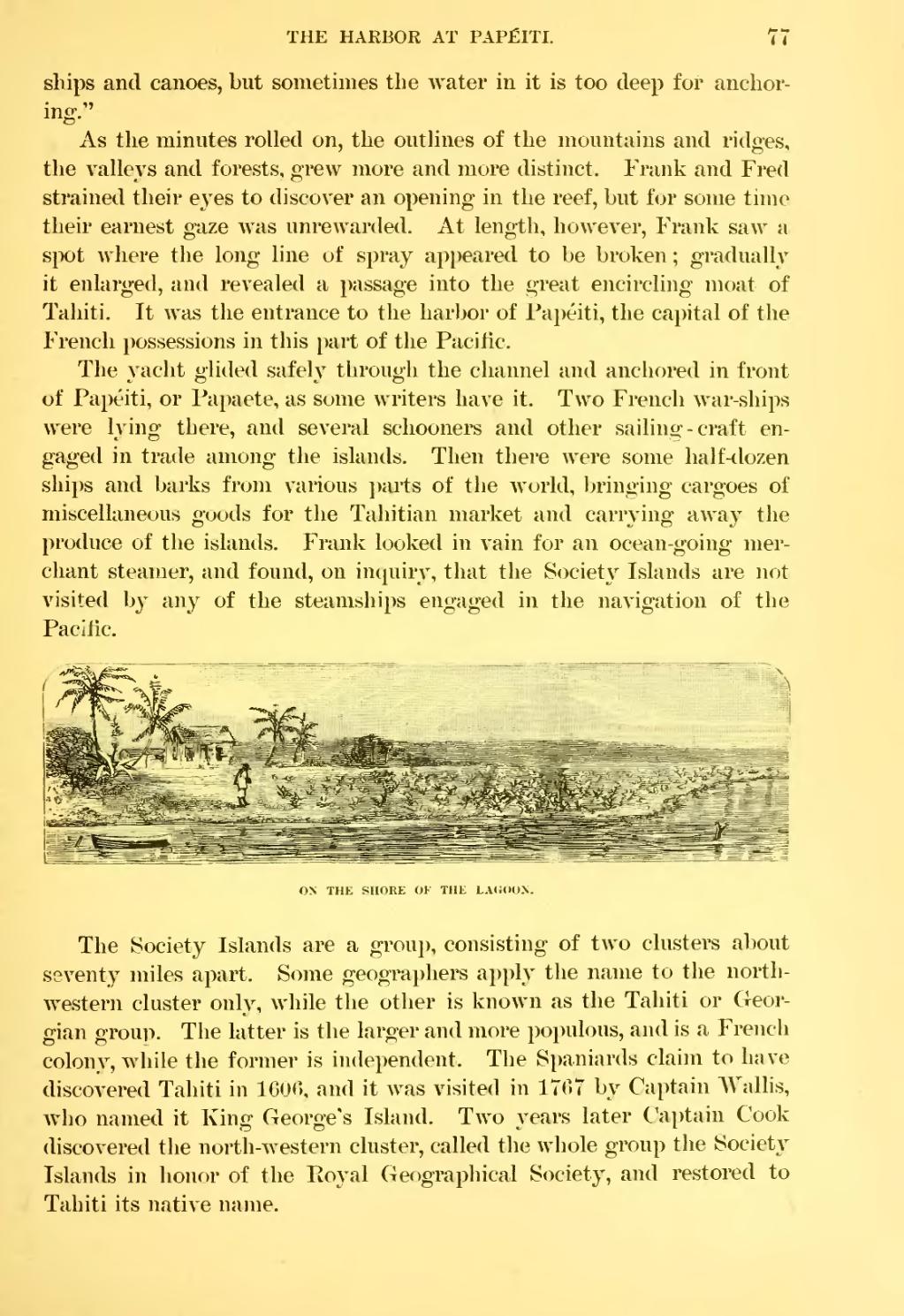ships and canoes, but sometimes the water in it is too deep for anchoring."
As the minutes rolled on, the outlines of the mountains and ridges, the valleys and forests, grew more and more distinct. Frank and Fred strained their eyes to discover an opening in the reef, but for some time their earnest gaze was unrewarded. At length, however, Frank saw a spot where the long line of spray appeared to be broken; gradually it enlarged, and revealed a passage into the great encircling moat of Tahiti. It was the entrance to the harbor of Papéiti, the capital of the French possessions in this part of the Pacific.
The yacht glided safely through the channel and anchored in front of Papéiti, or Papaete, as some writers have it. Two French war-ships were lying there, and several schooners and other sailing-craft engaged in trade among the islands. Then there were some half-dozen ships and barks from various parts of the world, bringing cargoes of miscellaneous goods for the Tahitian market and carrying away the produce of the islands. Frank looked in vain for an ocean-going merchant steamer, and found, on inquiry, that the Society Islands are not visited by any of the steamships engaged in the navigation of the Pacific.

ON THE SHORE OF THE LAGOON.
The Society Islands are a group, consisting of two clusters about seventy miles apart. Some geographers apply the name to the north-western cluster only, while the other is known as the Tahiti or Georgian group. The latter is the larger and more populous, and is a French colony, while the former is independent. The Spaniards claim to have discovered Tahiti in 1606, and it was visited in 1767 by Captain Wallis, who named it King George's Island. Two years later Captain Cook discovered the north-western cluster, called the whole group the Society Islands in honor of the Royal Geographical Society, and restored to Tahiti its native name.
